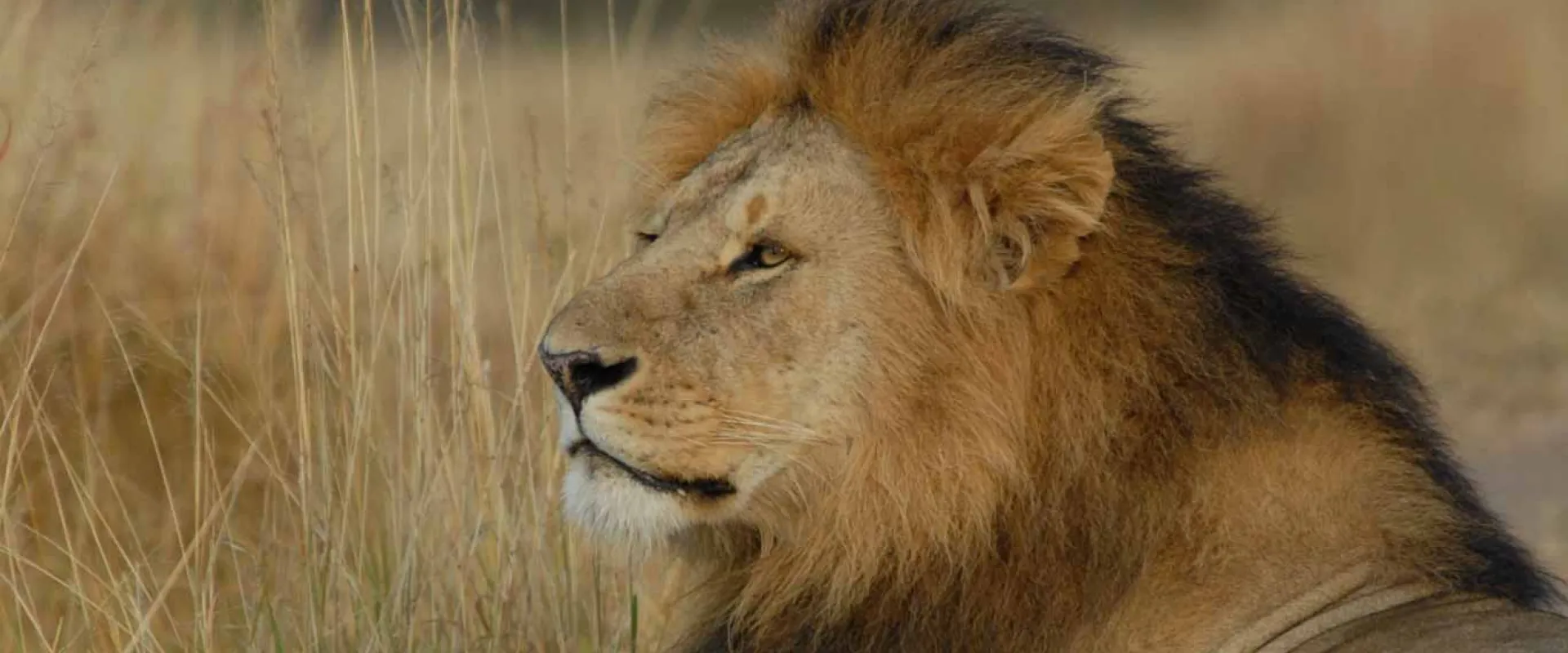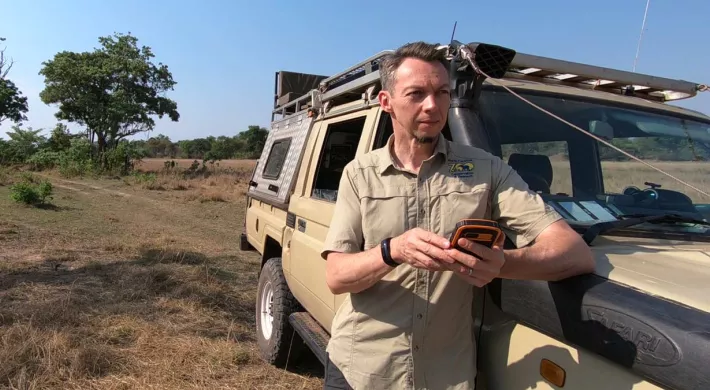Dr. Drew Conin, Associate Curator of International Conservation
African wild dogs fascinate me. Like many people, I love wildlife and have always loved wildlife documentaries as a child, but I’ve spent most of my adult life studying monkeys in the rainforests of central Africa where there are definitely no wild dogs. However, I distinctly remember the time wild dogs won me over. Taking a break from my PhD fieldwork, I was watching the BBC documentary, Planet Earth, in our field station and I saw the clip of wild dogs hunting. The coordination and grace was incredible. Since then, I’ve learned much more about them and have had the privilege to see wild dogs and other large carnivores, like lions and leopards, in the wild.
Unfortunately, as I’ve learned more about carnivores, I’ve also learned that populations of lions, cheetahs, wild dogs, and other carnivores are declining across Africa. Lions, in particular, have suffered due to poaching, unintentional snaring, or in retaliation for livestock predation, and as a result the African lion population has been cut in half since the 1990s.

In light of these pressures, the North Carolina Zoo has committed to work towards reversing these declines. Most of our efforts focus on equipping the conservation staff on the ground with the skills and technologies (mainly SMART) they need to more easily collect information on threats to large carnivores and other threatened wildlife. The idea is simple, in principle: put powerful data collection and analytical tools in the hands of frontline practitioners and they’ll be able to make well-informed decisions about how to protect carnivores and other wildlife from illegal activities.
In practice, however, it’s always much more complicated. These areas are remote, often-disconnected, and infrastructure and staff capacity are always a challenge. Try adding new technology, and it can be a real challenge. But the results speak for themselves - around the world, sites that are implementing SMART report increased patrol effort, declining threats, and stable or increasing populations. So that’s why we at the Zoo have made long-term commitments to numerous key sites for carnivore conservation across Africa, including implementing SMART anti-poaching programs, to help protect carnivores and the national parks on which they depend.

Kafue National Park is already home to significant carnivore populations, but it has the potential to host some of Africa’s largest populations of carnivores with improved protection. Prey species (e.g., antelopes) are heavily hunted in Kafue, which has reduced the numbers of large carnivores the park can support. For a number of years, we have worked with our partners, Panthera (the world’s largest big cat conservation organization) and the Zambian Department of National Parks and Wildlife (DNPW) to implement SMART in Kafue. Since the use of SMART began in Kafue, DNPW reports simplified and streamlined workflows, as well as increased data accuracy and consistency. SMART has also provided DNPW managers with a ‘big-picture’ understanding of their park, centralizing data on the level and extent of threats and monitoring of key species, like lions. As we had hoped, this has led to the prioritization of patrols and resources to areas facing the greatest threats, which will provide the best protection for the park’s carnivores.

But it’s not just about southern Africa. West Africa is often forgotten when people think of lions, and that’s largely due to the fact that west African lions only remain in tiny fragments, having lost 99% of their range, and now numbering fewer than 500 individuals. If these trends are not reversed, unfortunately the extinction of many of these species is a very real possibility in the near future. That’s why the Zoo also works with our long-term partner, WCS Nigeria, to protect Yankari Game Reserve - Nigeria’s only intact savannah protected area and home to Nigeria’s last population of lions, in addition to other wildlife. With our help implementing SMART, Yankari has improved anti-poaching strategies and remarkably had no elephants poached since May 2015, despite poaching being relatively common previously. These improved anti-poaching patrols are benefiting all wildlife and populations of most other large mammals at Yankari are also now recovering.


